The Memorisation Identity
TO: Potential Operatives Cognitive Enhancements Task Force
SUBJECT: Analysis of Popular Fiction Real-World Memory Techniques
FROM:
Directorate of Cognitive Application Research (DCAR)
DATE: 23 May 2025
CLASSIFICATION: UNCLASSIFIED FOR PUBLIC DISTRIBUTION

INTEL BRIEF
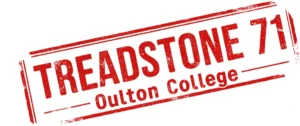 Origins of Cognitive Warfare
Origins of Cognitive Warfare
Popular media, such as the Jason Bourne films and the Sherlock series, frequently depict agents and adversaries with extraordinary memory and cognitive capabilities. While seemingly fictionalized, these portrayals often reflect real, trainable memory skills, drawing parallels to historical intelligence training methods, including those reportedly used by the KGB.
This blog reviews insights from educational sources to demystify these cognitive techniques and outline a practical application plan, particularly relevant for individuals seeking to enhance focus and information retention in demanding environments, such as academic settings.
DEBRIEFING
The Myth vs. The Mechanism
Most of us believe that memory is a fixed talent, it is, in fact, a discipline that can and should be trained. The brain, specifically the working memory (often referred to as short-term memory), has natural limitations, capable of holding approximately seven, plus or minus two, elements at a time (Miller, 1956).
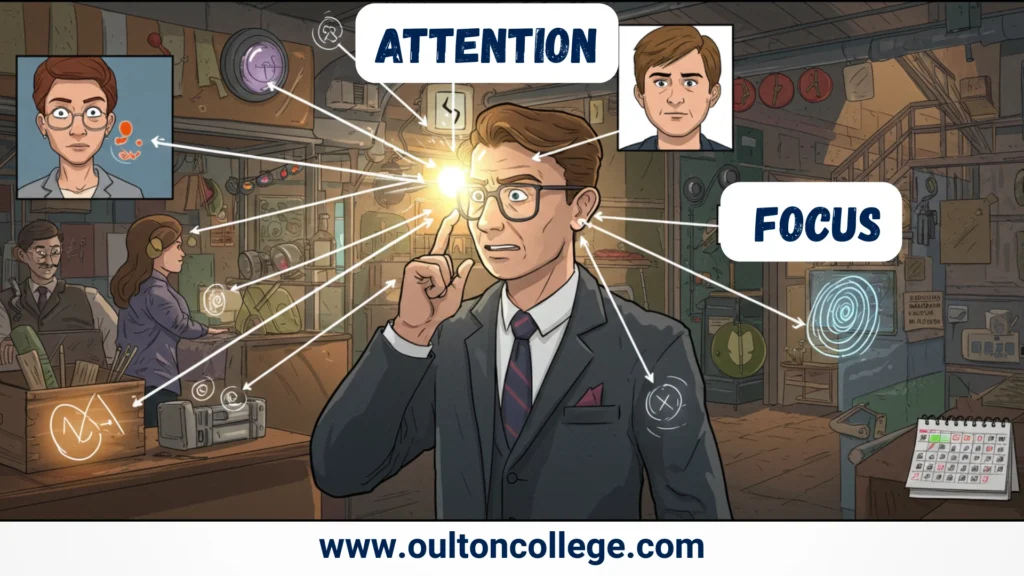
This means most people can manage 5 to 9 chunks of information at once. Later studies (e.g., Cowan, 2001) suggest the actual capacity is closer to 4 items when chunking is controlled. Information beyond this capacity tends to be quickly forgotten. This limitation was highlighted in a study by psychologist George H. Miller, published in 1956. The fundamental reason memory falters is often not weakness of the brain itself, but rather a lack of attention. All effective memory techniques rely first and foremost on paying attention to what needs to be remembered.
FIELD REPORT
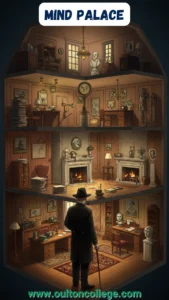 Fictional Ops, Real-World Potential
Fictional Ops, Real-World Potential
Characters like Jason Bourne, despite suffering from amnesia and forgetting his identity, retain deeply ingrained skills and reflexes. This fictional portrayal, aligns with the concept that certain types of memory, particularly skills or procedural memory, can persist even when explicit recall of personal history is lost.
Think about Bourne’s retained ability to infiltrate and kill despite his memory loss. Other fictional depictions, such as Sherlock Holmes’ “mind palace” or its use by villains, underscore the idea that memory techniques can be powerful tools, even weapons, for processing vast amounts of information or executing complex plans.
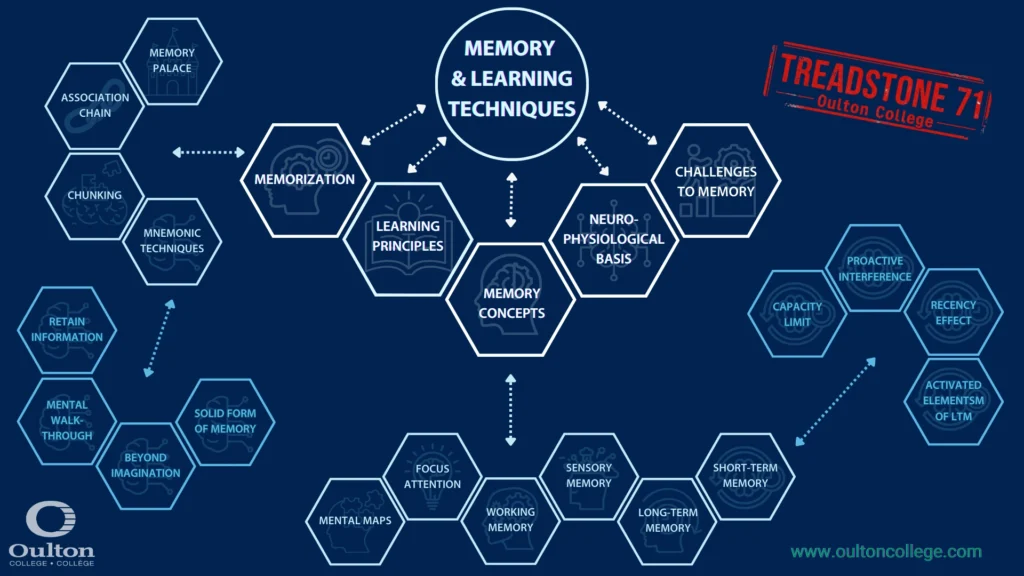
TRADECRAFT DOSSIER
Memory Techniques from the Field
Drawing from methods described as being used by elite agents and memory champions, several core techniques prove effective for enhancing memory:
- Method of Loci (Memory Palace):
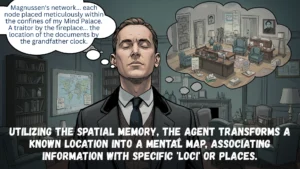
This is an ancient technique which involves associating items to be remembered, with specific locations in a familiar physical space, such as your house or kitchen. By mentally walking through the space, you can recall the information linked to each location.
Memory champions extensively use this technique. It has been shown to improve recall, even when used with virtual environments. Interestingly, this method has also been shown to help individuals with depression remember positive, self-affirming memories. - Chunking:
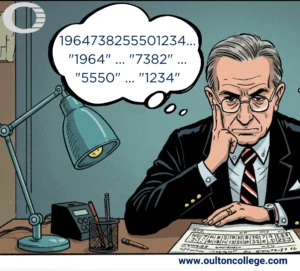
This method involves breaking down large pieces of information, particularly numbers, into smaller, manageable blocks. The brain struggles with long, non-linked sequences, but ‘chunking’ information into recognizable groups drastically improves retention, especially for numbers. For example, a sixteen-digit number can be divided into four-digit quarters. This technique helps overcome the limitations of working memory by reducing the number of items that need to be held simultaneously. - Visualization and Symbolism:
 The brain is naturally better at remembering images than abstract facts or numbers. This technique involves transforming abstract ideas into vivid, often bizarre, visual symbols or images.Examples include using a red umbrella on fire with a penguin to remember arbitrary information or spy symbols like a broken mirror for betrayal or a gold coin for extraction. Giving abstract concepts a visual form makes them more memorable.
The brain is naturally better at remembering images than abstract facts or numbers. This technique involves transforming abstract ideas into vivid, often bizarre, visual symbols or images.Examples include using a red umbrella on fire with a penguin to remember arbitrary information or spy symbols like a broken mirror for betrayal or a gold coin for extraction. Giving abstract concepts a visual form makes them more memorable. - Story Method:
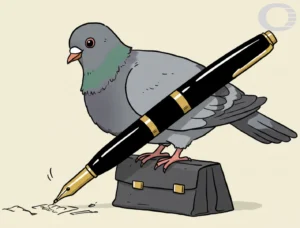
Turning facts or items into a narrative, especially one that is short, strange, or abnormal, significantly improves retention. The unusual nature of the story helps reinforce the memory.
For example, A briefcase… a pigeon… a fountain pen… No logical connection. But let’s craft an image… a giant pigeon writing with a fountain pen on my briefcase! - PAO (Person-Action-Object):
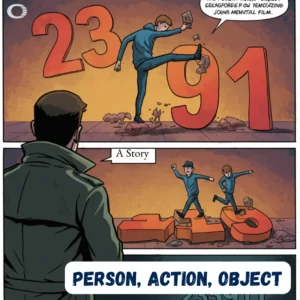 Primarily used for memorizing long strings of numbers, this method converts each two-digit number into a person, an action, and an object. These elements are then combined to create a mental “film” or scene. While powerful for numbers, it is noted as less easy to integrate into everyday learning compared to other methods.
Primarily used for memorizing long strings of numbers, this method converts each two-digit number into a person, an action, and an object. These elements are then combined to create a mental “film” or scene. While powerful for numbers, it is noted as less easy to integrate into everyday learning compared to other methods. - Sensory Marking / Association:
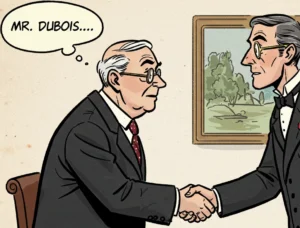 The foundational element for all techniques is attention and actively associating a piece of information with a specific sensory detail – an image, a sound, or even a sensation. This reinforces the sensory “marking” of the information, making it stick. A simple exercise is to immediately repeat someone’s name aloud upon hearing it and observe a distinctive facial detail, connecting auditory, visual, and attentional processing.
The foundational element for all techniques is attention and actively associating a piece of information with a specific sensory detail – an image, a sound, or even a sensation. This reinforces the sensory “marking” of the information, making it stick. A simple exercise is to immediately repeat someone’s name aloud upon hearing it and observe a distinctive facial detail, connecting auditory, visual, and attentional processing.
TRAINING PROTOCOL
Structured Cognitive Conditioning
Developing a strong memory is less about knowing a multitude of techniques and more about consistently using a few key ones. A simple, strategic 7-day plan, repeatable weekly, can significantly enhance daily memory capabilities:
- Day 1 & 2: Build Your Memory Palace. Choose a familiar location (e.g., your kitchen) and mentally place five pieces of information you find difficult to retain within it. Your mission is to mentally walk through this palace twice daily.
- Day 3 & 4: Create a Memory Chain. Take three pieces of information and link them together using absurd or unusual images. Review this chain for 2-5 minutes every four hours throughout the day.
- Day 5: Master Chunking. Obtain an 8-digit random number (using a tool like ChatGPT is suggested). Break it into two-digit blocks and practice recalling it using chunking 2-3 times per day without cheating. First recall the blocks, then the full number.
- Day 6 & 7: Craft a Story. Take five random words and weave them into a short, strange story. Tell yourself the story, wait an hour, and recount it again.
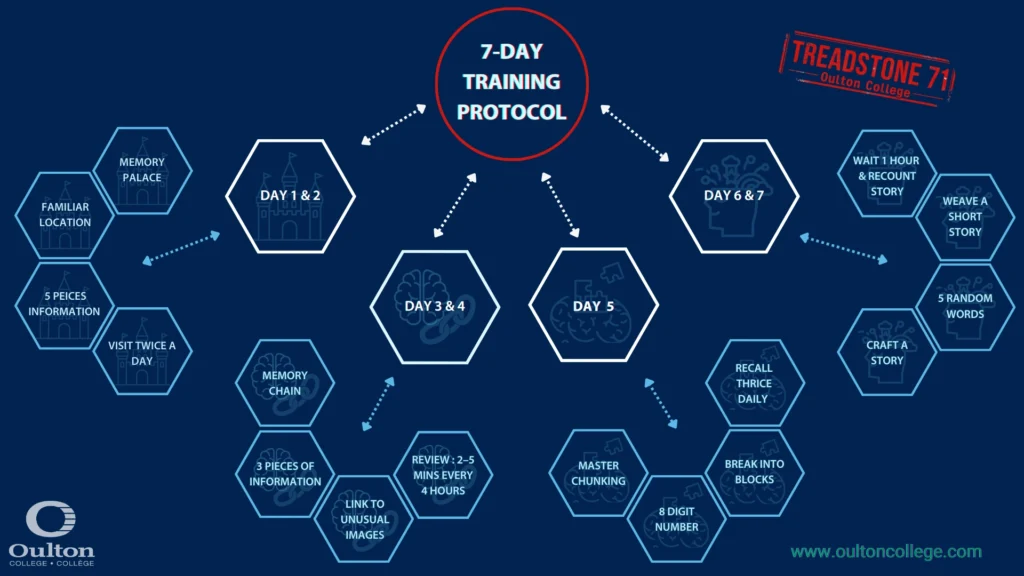
OPERATION OVERLOAD
Progressive Recall Enhancement
To continuously improve, gradually increase the amount of information you attempt to memorize each week. Add one new piece of information to your Memory Palace and chain, two new digits to your chunking exercise, and one new word to your story. Every four weeks, change the entire set of information you are working with, starting with a slightly higher initial load than when you first began.
This approach is akin to progressive overload in physical training. Dedicating just 5-10 minutes per day to these structured exercises can be more effective than hours of passive study.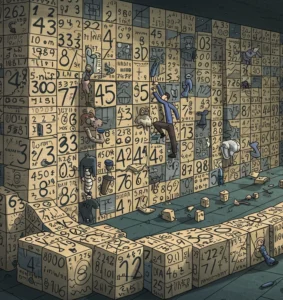
TARGET PROFILE
Gen Z Operatives in the Field
These techniques are directly applicable to academic life, helping you retain course material, remember names, recall instructions, and generally improve focus.
Oulton College, through our Student Affairs department, offers resources including tips and tricks aimed at helping students maximize their potential. Reach out for more information on study tips and tricks.
FINAL TRANSMISSION
Mission Debrief & Strategic Takeaways
Memory is not a passive recipient of information but an active process that can be shaped and strengthened through disciplined training. By adopting structured techniques like the Method of Loci, chunking, visualization, and storytelling, individuals can significantly enhance their ability to store and recall information deliberately and effectively. It is important to note that consistent, intentional practice is the key to transforming memory capabilities and improving overall cognitive function.
OPERATION OVERLOAD
Progressive Recall Enhancement To continuously improve, gradually increase the amount of information you attempt to memorize each week. Add one new piece of information to your Memory Palace and chain, two new digits to your chunking exercise, and one new word to your story. Every four weeks, change the entire set of information you are working with, starting with a slightly higher initial load than when you first began.
To continuously improve, gradually increase the amount of information you attempt to memorize each week. Add one new piece of information to your Memory Palace and chain, two new digits to your chunking exercise, and one new word to your story. Every four weeks, change the entire set of information you are working with, starting with a slightly higher initial load than when you first began.
This approach is akin to progressive overload in physical training. Dedicating just 5-10 minutes per day to these structured exercises can be more effective than hours of passive study.
TARGET PROFILE
Gen Z Operatives in the Field
These techniques are directly applicable to academic life, helping you retain course material, remember names, recall instructions, and generally improve focus.
Oulton College, through our Student Affairs department, offers resources including tips and tricks aimed at helping students maximize their potential. Reach out for more information on study tips and tricks.
FINAL TRANSMISSION
Mission Debrief & Strategic Takeaways
Memory is not a passive recipient of information but an active process that can be shaped and strengthened through disciplined training. By adopting structured techniques like the Method of Loci, chunking, visualization, and storytelling, individuals can significantly enhance their ability to store and recall information deliberately and effectively. It is important to note that consistent, intentional practice is the key to transforming memory capabilities and improving overall cognitive function.
END OF MEMORANDUM:
UNLOCK YOUR BRAIN'S HIDDEN PROTOCOLS
FORGETTING IS NOT AN OPTION.
Book an Admissions Meeting Today!
Remember that by investing in your education, you are investing in your future, gaining the skills and connections you need to thrive in your career and life.
*Please note that information may be subject to modifications. We encourage current and prospective students to visit the websites in order to obtain the most recent information.

